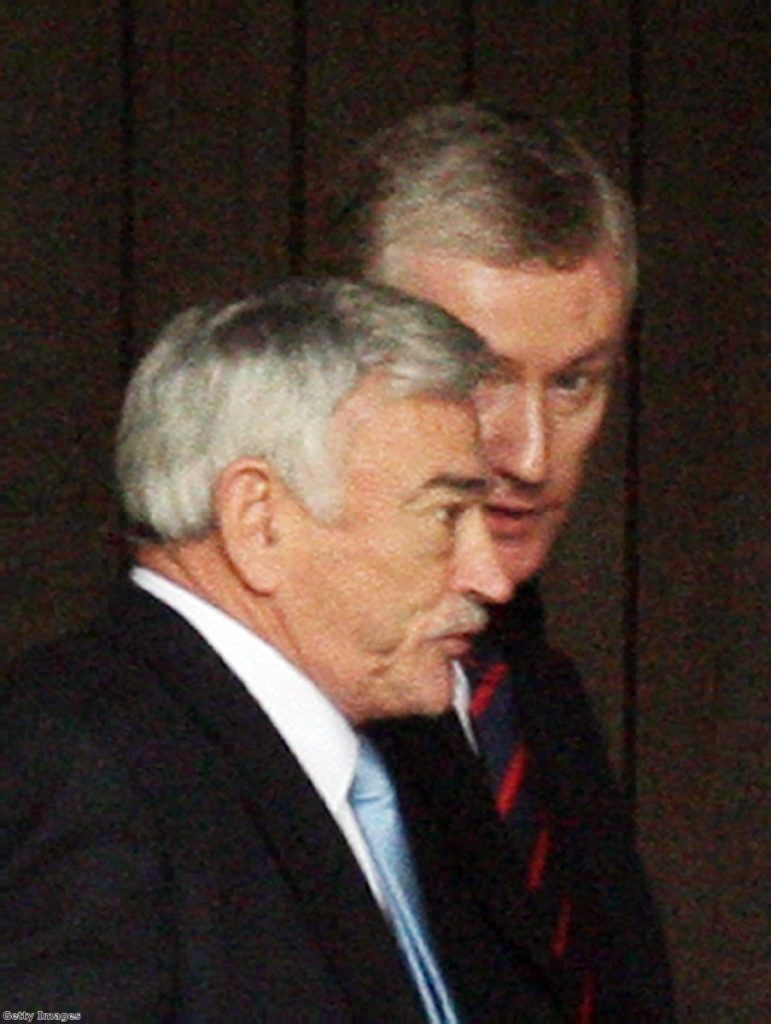Fred Goodwin: Backlash against ‘mob mentality’
By Ian Dunt Follow @IanDunt
There was an unexpected backlash against the decision to strip Fred Goodwin of his knighthood this morning, as senior politicians, business leaders and media outlets criticised the move.
Given the populist overtones of the pronouncement, government sources will be displeased that it was greeted with such wariness.
"There's a whiff of the lynch mob on the village green about this," CBI director general Digby Jones told the Today programme.


"Why just him? There are a fair few knights on the board. Where does this stop?
"What we need to do is make sure that there's a kid in Bangalore today who's thinking he will come to Britain, make his fortune, create jobs, pay tax, and he thinks: 'hey, don't go there'. Not because of the money, but because of the lynch mob mentality if someone fails."
Former chancellor Alistair Darling said the decision made for "bad government".
He continued: "There is something tawdry about the government directing its fire at Fred Goodwin alone.
"If policy is not based on principle but is about individuals, the government will carry on being blown in the wind.
"I just think we are getting into awful trouble here if we go after people on a whim, and we don't have a clear set of principles against which we can judge people."
Conservative deputy chairman Michael Fallon tried to assert that the forfeiture committee, which is composed of senior civil servants, was "entirely independent of politicians", but his claims met with ridicule online.
Most commentators believe Mr Goodwin's fate was sealed once the prime minister called for him to have his knighthood removed.
Those campaigning for more action to rein in the banks were using the occasion to push for more radical measures, in a sign that the decision had encouraged, rather than satisfied, demands for tougher sanctions against those involved in the financial crisis.
Human rights advocate Peter Tatchell said the decision was merely symbolic and showed the need to create new criminal offences around corporate negligence and recklessness.
"Bosses should be held personally liable for losses that result from imprudent, careless decisions," he said.
"If the medical profession can have disciplinary procedures for negligent actions, why not business?"
The press reacted in a troubled and circumspect manner. While the Daily Mail was strongly supportive, most other newspapers were considerably more critical.
The Independent pointed out that Mr Goodwin had broken no law and that the decision was therefore "crass, childish, and wholly counter-productive".
The Times branded the decision "cheap", adding: "This is the first time it has been done for, effectively, commercial incompetence. And the setting of such a precedent is worrying."
The Telegraph said Mr Goodwin was a "convenient scapegoat" for anger around the financial crisis.
"David Cameron and the other leading politicians who have encouraged this populist bloodlust should be ashamed of themselves," it said in an editorial.
"Now that the precedent has been set, the mob will want more, because it always does."
The spotlight now falls on other knighthoods handed to those involved in the financial crisis.
There are consistent whispers around Sir Victor Blank, the former Lloyds boss, and Sir Callum McCarthy, who ran the Financial Services Authority and then moved to the Treasury just before the crisis.

